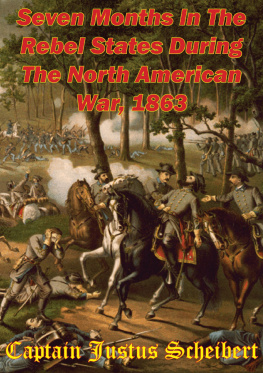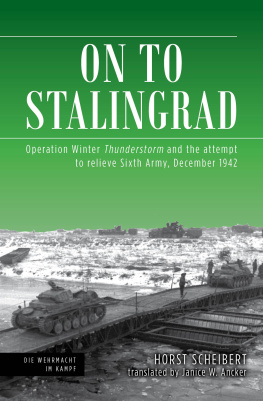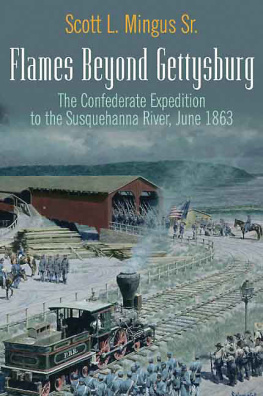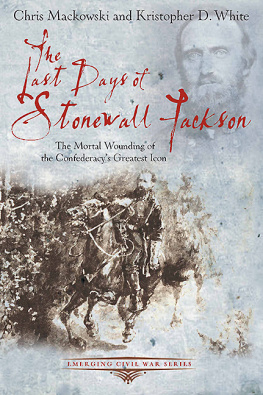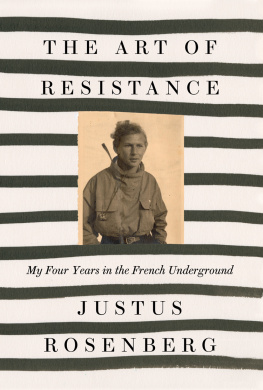This edition is published by PICKLE PARTNERS PUBLISHINGwww.picklepartnerspublishing.com
To join our mailing list for new titles or for issues with our books picklepublishing@gmail.com
Or on Facebook
Text originally published in 1958 under the same title.
Pickle Partners Publishing 2014, all rights reserved. No part of this publication may be reproduced, stored in a retrieval system or transmitted by any means, electrical, mechanical or otherwise without the written permission of the copyright holder.
Publishers Note
Although in most cases we have retained the Authors original spelling and grammar to authentically reproduce the work of the Author and the original intent of such material, some additional notes and clarifications have been added for the modern readers benefit.
We have also made every effort to include all maps and illustrations of the original edition the limitations of formatting do not allow of including larger maps, we will upload as many of these maps as possible.
Seven Months in the Southern States During the North-American War, 1863
By
CAPTAIN JUSTUS SCHEIBERT
Translated from the German by
JOSEPH C. HAYES
Edited with an Introduction by
Wm. STANLEY HOOLE
TABLE OF CONTENTS
Contents
Introduction
MANY OF THE BOOKS written by foreigners who cast their lots with the Confederate States of America are well known and widely quoted,
Captain Justus Scheibert, a prolific writer of military treatises, was born on May 16, 1831 in Stettin, Pomerania (now Szczecin, Poland), the oldest of eleven children. In 1849 he joined the Prussian Army. A year later he passed officer examinations and for a decade thereafter served at Glogau, Magdeburg, Silberberg, Neisse and other military posts. In January, 1863, as Captain Scheibert, he was ordered by Prince von Radziwill, chief of the Prussian Engineer Corps, to proceed at once to the North American war threatre as an observer. Already well known as an authority on fortifications, he was instructed especially to study the effect of rifled cannon fire on earth, masonry, and iron, and the operation of armor on land and at sea.
Originally, Radziwill had planned to send Scheibert to the United States Army, but the Captain, a strong Southern sympathizer, believed that his mission could best be accomplished by attaching himself to the Confederacyand the Prussian high command agreed.
Armed with letters of introduction from Confederate Agent James M. Mason to Secretary of War James A. Seddon, Captain Scheibert arrived in Charleston on March 15. He was warmly received by General P. G. T. Beauregard. Two weeks later, he went on to the headquarters of the Army of Northern Virginia beside the Rappahannock, where General Robert E. Lee extended him every courtesy.
Scheibert remained at Lees headquarters ten days, until April 19, during which time he became well acquainted with Generals Jeb Stuart and Stonewall Jackson and Major Charles S. Venable, one of Lees aides, visited the battlefield at Fredericksburg, observed Confederate infantry, artillery, and cavalry drills, and otherwise shared the austere yet oft-times pleasant camp life of his high-ranking hosts. Meantime, much to his delight, he met a distinguished fellow-countryman, Colonel Heros von Borcke, also of the Prussian Engineer Corps, who had been with Stuart for a year and was serving as his chief-of-staff. Upon Stuarts and Borckes urgent requests, Scheibert decided to visit Stuarts headquarters near Culpeper which, after a short trip to Richmond, he reached on April 21.
As a member of Stuarts staff, Scheibert served as Rittmeister that is, as sort of handyman, making maps, helping on bridge and breastwork constructions, carrying messages and otherwise making himself useful. And during the weeks that followed he endeared himself to all who knew himespecially the ladies in nearby Culpeper. As Borcke wrote later, Scheibert delighted them with his excellent piano-forte playing, to say nothing of the amusement they derived from his original practice with the idiom and pronunciation of the English language. he participated in the battles of Chancellorsville and Brandy Station and, at Lees request, accompanied the Army of Northern Virginia on its invasion of Pennsylvania.
Meantime, in addition to the Prussian Captain Scheibert, four other foreigners had joined the headquarters staff of the Southern armyFrank Vizetelly, artist and correspondent for the Illustrated London News; Lieutenant-Colonel Arthur J. Lyon Fremantle of the English Coldstream Guards; Francis C. Lawley, correspondent for the London Times; and Captain Fitzgerald Ross of the Imperial Austrian Hussars. Each found a cordial reception at Lees and Stuarts headquarters, as had Scheibert. (Regrettably, the sixth European, Heros von Borcke, could not be with them.
On the morning of July 2 Scheibert selected a very tall nut tree on top of Seminary Ridge as the best point from which to observe the impending Battle of Gettysburg. Soon Fremantle and Lawley came along, armed with a long telescope, and, as the battle began, the three men climbed the same tree the better to follow with their glasses the movement of the armies in the valley.
After helping the Confederate Engineer Corps build a bridge across the Potomac (thus greatly facilitating the retreat of Lees army), and Borcke who, still suffering from his wounds, was able to join his friends in their recreations.
Scheibert, having been deprived of visiting Vicksburg, spent several hours studying the siege plans in the office of the Confederate Engineer Corpswithout obtaining thereby any especially note-worthy information. He also revisited Secretary Seddon and called on Secretary of War Judah P. Benjamin, but by far his most interesting experience was his conference with Jefferson Davis, who asked him to seek an audience with Emperor Napoleon on behalf of the Confederacy:
If the Emperor will free me from the blockade [Davis said] and he will be able to do that with a stroke of the pen, I guarantee him possession of Mexico. We forced this state into submission in the year of 1842 [sic] with about 12,000 men since our soldiers are accustomed to the climate and to the opponents method of combat. We can still do that at any time, for the dispatching of a corps of some 12,000 to 20,000 men would by no means be difficult for us in return for the advantages of lifting the blockade, which is gnawing at our vital nerve.
Scheibert promised Davis that he would do all within his power to help.
At five oclock on Thursday morning, August 8, Captain Ross and Captain Scheibert took the cars for Charleston, where they again fell in with Frank Vizetelly.
Vizetelly and Ross left Charleston for Chattanooga on September 14 and shortly thereafter Scheibert took the train for Wilmington. He spent a week there, inspecting fortifications, fishing, and sailboating in the company of two beautiful Carolina women. Toward the end of the month he sailed for Liverpool, which he reached in late October, after having been delayed in Bermuda and Nova Scotia.
Upon his arrival in Europe, Scheibert, now a confirmed Confederate, hastened to Paris in hopes of somehow personally delivering President Davis plea to Emperor Napoleon, but before he could make all the diplomatic arrangements, Prince von Radziwill recalled him to Prussia. Between 1870 and 1878, now as Major Scheibert, he spent several months recuperating at the castle of General Vogel von Falckenstein, after which he served as post engineer at Posen, Minden, Cstrin, and other places. In the mid-1870s he traveled to Tirol, seeking a cure for his wounds.


